#jonbenet ramsey murder
Explore tagged Tumblr posts
Text
Unveiling the JonBenet Ramsey Case: Astrological Insights; Live Thursday June 1 at 1pm Eastern
#unsolved mysteries#true crime astrology#forensic astrologer#joshua macguire#joshua the psychic#jonbenét ramsey astrology of crime#jonbenet ramsey murder
1 note
·
View note
Text
True Crime can be interesting sometimes but other times you have a whole swath of people who I can only assume have negative brain cells who think, because of 1 documentary and the flimsiest evidence imaginable, that a 9-year-old with no actual documented history of deviant behavior before nor since, fashioned a complex garrotte, sexually assaulted his sister, and then bashed her over the head killing her, all because she allegedly ate a bit of his snack.
Seriously if you think Burke killed Jonbenét Ramsey you're a fucking idiot and you need to learn like, 14-year-old levels of critical thinking. Even me at my little age of 16 when that documentary came out was like ".... This seems like an incredible stretch and like this documentary has a disingenuous agenda." If whole ass adults can't reckon that out, it's no mystery to me why our society is failing sideways.
"tHe PiNeApPlE" so these siblings shared a snack that the parents didn't mention or weren't aware of. What ground-breaking evidence. "BuT tHe GoLf ClUb" you mean the hearsay that one family friend said that Burke had thwacked his sister with a golf club at one point as young kids? That was never documented in any police or medical records? You're so right, what incontrovertible proof.
Yeah. That seems like sufficient evidence to try and destroy a family and a person's life over. It's not like the Ramseys were documented to have given out dozens of keys to their home at parties, or that putting a little girl in hypersexualized pageants would maybe attract stalkers and child abusers who would seek to harm her. It's not like the DNA didn't match Burke, or anyone in the household, for that matter. It's not like the father hasn't been consistently trying to get the DNA re-tested which, if he was protecting his son, would be extremely counter-intuitive.
Grow a fucking brain.
36 notes
·
View notes
Text
I fucking hate true crime so fucking much
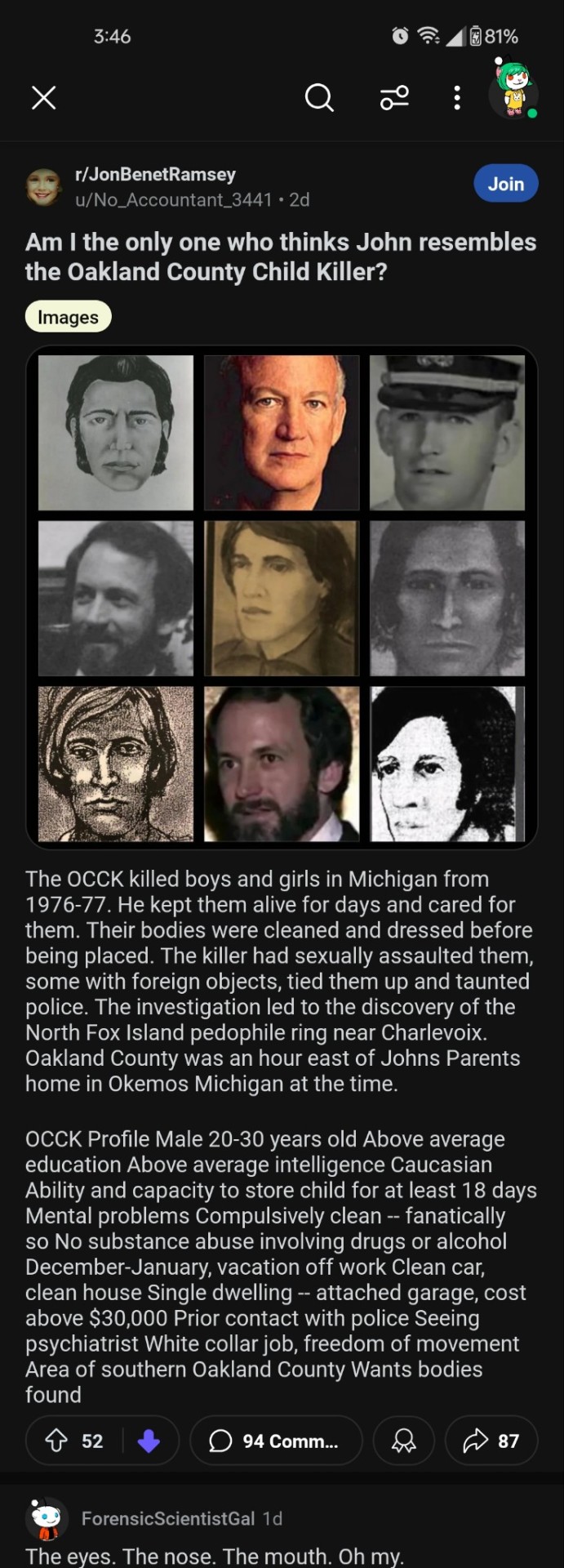
Scrolling reddit and this bullshit showed up in my feed.
If I had a penny for every time I saw a true crime fan act like these real events, real actual tragedies, are just some fun little story....I'd be one of the richest fuckers in the world.
I don't know if there's an actual term for this. An actual term for when people become incapable of processing reality as anything other than media to be consumed. The only thing I can think to call it is media poisoning.
JonBenet Ramsey isn't a real person anymore, her family aren't real people, the victims of Oakland County aren't real people and neither are their families. They're just characters. What happened to them isn't real, the tragedy, the pain, the death, the soul-shattering grief....it's not real, it's just a story.
If they were real, you couldn't make posts like that. You couldn't have a podcast called My Favorite Murder. You couldn't have people dressing themselves or their kids up as serial killers for Halloween. You couldn't have a wildly successful youtube series casually discussing murders while putting on makeup or doing mukbangs.
So they can't be real. They have to be media that you consume. And that's all they get to be. A product.
#These are real people and they deserve to be treated like real people#Maybe it's the rigid autistic morality speaking but true crime is an absolute blight#true crime#jonbenet ramsey#my favorite murder#bailey sarian#stephanie soo#Oakland County#reddit
8 notes
·
View notes
Text
sorry but why is everyone being so fucking weird about the watcher thing 😭 don’t subscribe if you don’t want to but whyyyy do I keep seeing people act as if this is some sort of personal attack
#THEY ARE NOT YOUR FRIENDS THEY DID NOT BETRAY YOU#for anyone unaware watched announced they’re launching a subscription service for all their content going forward#instead of posting on YouTube#and although I of course understand being disappointed about that#the way people have been talking about it is literally crazy.#I’m also seeing people for real be like ‘how dare you pay $6 for a subscription service when you could be using that money to buy esims for#Gaza’#literally WHAT 😭😭😭#man finds time to make birdhouse while jonbenet ramsey’s murder is still unsolved ass take
9 notes
·
View notes
Text





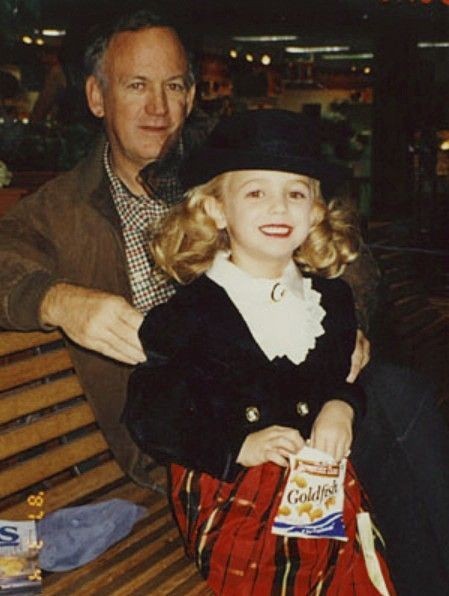




The poor little girls 🥹✨️✨️✨️💮🪷
Oh my God what happened, to these free beautiful little girls one question that will never be answered. And probably will remain in mystery but ever although I like to have faith
So today we’re talking about Madeleine McCann, Kaylee Anthony, and Jon Benet Ramsey, free, beautiful little girls who were taken before the age of 10, nearly before the age of 5, two of which were under 5, 1 for my mother. Many believe it is a pathological liar, Casey Anthon y, who hasn't even done time four stacks of evidence that point her towards this crime of childhood murder of a parent. She lied about a lot of things, one being that her father abused her. Now, I don’t like to say that that’s a lie, but it’s kind of like an Amber Heard situation. Now there’s no perfect victim apart from a dead one, apparently. Kaylee Anthony, I believe it’s 2 ½ or three years old. She hadn't even started her life. There's evidence that mounts toward the mother. The mother who says her father abused her now, who am I to say he didn’t? It’s just a lot of people believe this to not be true. They wanted to protect Casey. Casey had her pregnant, but she couldn’t for long because she was a very little girl woman, because she wasn't a woman yet. She was still a girl in her teens, and after she had the baby, I think she had some sort of breakdown. Truly, with this case, I feel like it was a really disgusting, disturbing accident where people vouched for this woman, a late teenager. One of which is her mother; of course, her mother wants to protect her. Now, we all have our own inklings of things that happened and some crimes. I’m just like, yes, I know the answers, such as the Menendez brothers, most of which, I’m not too sure. Because I like to look at things from every person’s point of view such as Jonbenet, I am a sucker for believing this person or that person and hate the thought of any parent who is Innocent thanks torn apart by the press or other CD outlets in fact it breaks my heart for them it’s very harmful for everybody involved in said case because families anyway are complicated. If I have any sort of inkling, but between the parents of this child, I’m all wanna say the mother. One because John lost a child already and he fell and his wife felt that John bernay was then miracle child their second time from her cancer and his loss of her the daughter from his first marriage, sadly, some people have so much loss in their lives I noticed however on this new documentary how they left the brother but out of it now that was never accident because I feel like the
Burke, might have some sort of learning disability all mental illness that has been hidden from the public life after his intimate apparent from the doctor's also exit this table tell me what you guys think. Now this last one Madeline McCann 100% or let’s say 90% believes the parents were involved first who needs their child and young babies in a hotel room on their own while they go and have dinner to me that’s weird I don’t have children but to me that is weird what why would you do that,. 2 they went to a destination that isn’t a popular holiday destination and is known for a child or even human trafficking; the connections that Kate and Jerry had people can be very debaucherous, such as the police doctors, lawyers, unknown pedophiles, the Portuguese police wanted to point out on them. They blocked a lot of the media for that. You have to remember, guys, what is the agenda for anybody involved? Is it just pure parental love? Any wet thing where it's a large case and the breath is involved we have to look out for these behaviors, Sup jug when Holly Wells and Jessica Chapman, you could see the pain on these parents' faces and I just without a doubt knew I just knew it wasn’t them we knew it was just creepy caretaker on his girlfriend which they often are if you watch the program Maxine. It is very good and explains it all, but guys, tell me what you’re saying because is there anyone OK is the only one I feel that there was proper family involvement.
6 notes
·
View notes
Text
having a real trippy one cuz I just saw a clip of Bill Clinton campaigning for Harris-Walz and was like "wait hold on he's decidedly an old man now when did that happen." The Clinton scandal is one of the first big news stories I remember (albeit with very little concept of what exactly it was about lmao) and apparently that was formative enough that he's just been fifty-ish in my head ever since. 😅
#other news stories that made a major impression in my early childhood: Princess Diana's death and the murder of JonBenet Ramsey#millennials really never have gone a day without Shit Going Down have we?
4 notes
·
View notes
Text
yeah humans have kinda always been morbid dicks about tragedies. like you look up any old timey murder case and 9 times out of ten there will be a crowd of lookey-lous wandering onto the crime scene and just taking shit
#like the murder of the lawson family; neighbors stole raisins off the christmas cake for keepsakes#while they wandered through the crime scene where 7 people (5 of them small children!) where murdered#or when the bodies of her beaus were discovered on belle gunness's farm#while the police exhumed more bodies there were straight up vendors setting up right next to them#a guy was selling lemonade and ice cream and cake. there was a popcorn vendor. someone was selling commemorative postcards#someone even managed to sell a dog corpse to a young woman by telling her that belle gunness practiced poisons on it!#and when the police finally had enough and told everyone to leave#the crowd freaked out and surged towards the house#they tried prying open the windows or tear off the siding of the house to get inside#it was fucking madness#also during the jack the ripper case one of the suspects was cleared because his alibi was that he was watching a house burn down#with another crowd of people#now that i think about it im pretty sure the same thing happened with the jonbenet ramsey case#where neighbors just walked in and poked around and took stuff#there's dozens of more examples honestly#and there is a lot to be said about how a lot of true crime cases are covered or how true crime fans respond to things#but tldr: this is not a new problem unfortunately. people have always been disrespectful and morbid
8 notes
·
View notes
Text
i feel like you can be interested in both the titanic sub news story and mediterranean boat news story at the same time. obviously i feel awful for the people on the boat and i don't really feel bad about the people on the sub but like. every post i've seen abt them on here acts like you can't care about two things at once
11 notes
·
View notes
Text

#reaction image#clickhole#text#selfish: this man found time to build a birdhouse while jonbenet ramsey's murder is still unsolved
5 notes
·
View notes
Text
Jonbenet Ramsey true crime cold case reopened: Who is to blame for this crime? Shannel Tarot Reading
In Unsolved Mysteries: Jonbenet Ramsey true crime cold case reopened: Who is to blame for this crime? Shannel Tarot reveals details that the investigation may have missed. You will be shocked by the findings.
youtube
#jonbenet ramsey#true crime#trending#tarot reading#breaking news#unsolved mysteries#unsolved case#unsolved murder#tarot card reading#Shannel Tarot#Youtube
0 notes
Text
i hate armchair detectives and i also hate armchair detectives but you know what i REALLY hate?
(It’s armchair detectives.)
#literally you aren’t going to solve jonbenet Ramsey’s murder just because you Google her third cousins high school year book photo#or some other weird dumb shit
1 note
·
View note
Text
had a dream last night that i solved the jonbenet ramsey case. don’t remember a single detail.
#and like i remember being kind of aware that i was dreaming#and thinking like ‘i NEED to remember all this when i wake up cause i’ve FIGURED OUT!’#well. sorry.#selfish: this man woke up while jonbenet ramsey’s murder remains unsolved#bucky’s thoughts#jonbenet ramsey
0 notes
Note
To quote your blog description, "reblogs =/= endorsements"
I'm just currently a little confused about some information going around about Sappho? Some members of the lesbian community are saying that Sappho's bisexuality was fabricated by men as a way of erasing her lesbian identity and I'm just wondering if there are sources to support this or if it's just another case of biphobia?
Short Answer:
Here is the deal: No one knows the exact truth about Sappho. What we have is fragments of poems and some very flattering words from the Alexandrians. Besides having a ballpark of when she lived (600’s BC) and where (Lesbos), we know almost nothing about her.
But that’s really not the point.
Sappho wrote lyrical and romantic poetry about men and women because it was her job. She got PAID for this, presumably. We don’t know how she really felt about any of it. It certainly seems like she cared about the people she wrote about, and maybe she did. Or maybe she was just a really good writer.
Our culture is full of generalizations about history and historical figures. But it is only when Sappho is claimed as bisexual that people wring their hands about how we don’t know for sure. Applying any label to a historical figure is technically dicey, but it is only the bi ones that have to prove it 100% beyond a shadow of a doubt. The word lesbian, used to refer to women who are attracted to women, didn’t even exist in her time, but you don’t see people interrogating lesbians over historical inaccuracy.
Longer Answer with Historical Context (or, Ellie finally gets some use out of her Classical Studies degree):
The context of Sappho’s relationships with women is kind of complicated. Sappho ran a thiasos, a sort of informal finishing school for young unmarried women. Upper-class families would send their daughters to these academies for instruction in proper feminine behaviors, as well as music and poetry recital, before they transitioned into married life (Krstovic). Aphrodite, the goddess of love, was the patron deity of the thiasos, and Sappho frequently used symbols of Aphrodite - flowers and garlands, perfumes, incense, and outdoor scenery – as part of her love poetry to the young women under her tutelage (“Sapphos”). Many of Sappho’s poems were actually marriage songs for these girls when they left to marry men.
Sappho’s thiasos may be considered the female counterpart to the male education system. In the Athenian Greek world, it was common for older men to take a younger boyfriend, and this was an important part of training the boy for his adult public life , providing him with connections he would need to operate in a democracy. In Plato’s Symposium, Pausanias (himself an older lover), describes the relationship in terms of education. “When the former (the older lover) has the power to contribute towards wisdom and distinction, and the latter (the younger beloved) needs to acquire education and accomplishment” (Klink p.196-197). So if you want to talk about cultural differences, and how you can’t apply modern definitions to people in history, there’s your first point: When we talk about Greek homosexuality or Sappho, we’re talking about pedophilia, not the adult relationships that define modern gay/lesbian, bisexual relationships.
So Sappho was probably writing to under-aged girls. Athenian Greek readers would have probably seen an echo of their own pedophilic system in Sappho’s poetry. Whether or not they respected it the same way they respected their own male system is debatable, and given that women had such a poor role in Athenian society, they probably didn’t. But they would have recognized it as the same system, even while believing it to be “inferior”. Greek men saw female forms of the pedophilic system elsewhere. By 100 CE, Plutarch described Spartan women taking girls as lovers, as the explicit female counterpart to the male practice (Klinck 197). This may be late archaic Greek idealization of the past, but it introduces the idea that men would have been aware of women following similar homosexual practices. In Plato’s Symposium, Aristophanes talks about women who love women and equates it to heterosexual love, in that both heterosexuality and lesbianism were inferior compared to male homosexuality. He treated lesbianism as a joke, but he is clearly drawing parallels between it and male homosexual practices of the time (Klinck, 196-197).
But for all her same-sex love poetry, Sappho didn’t seem to have a queer reputation until 100-200 CE, nearly 800 years after her death. The earliest reference to Sappho’s sexuality doesn’t come until the second or third century CE, from a papyrus based off the earlier work of Chamaeleon. “She has been accused by some people of being licentious in her lifestyle and a woman-lover.” (Klinck, 194-195) “Woman-lover” is pretty clear, but take a minute to look at the word “licentious.” The verb is ataktos, meaning “not properly regulated,” “out of line,” or “unmanageable.” This word is important because it tells us about her sexual reputation.
By the Athenian period, women from Lesbos may have has a reputation for “unmanageable” sexuality, in much the same way the modern Western world stereotyped certain races and nations as more sexual. They may have especially had a reputation for oral sex, a more “slutty” act than ViP intercourse in the ancient world. In Wasps, a play by the Athenian comedian Aristophanes, the character Philocleon says he snatched up a flute-girl when she was going to “lesbianize” a man at the party, meaning she was going to perform oral sex with him (Klinck, 195). The effect is to equate the country with “unmanageable” sexuality. Other references to lesbian actions are less clearly oral, but definitely sexual in nature. The joke seemed to be that women from Lesbos were so sexual, they’d even do anything, even each other.
So Sappho’s reputation was one of “unmanageable” sexuality, whether she was writing homoerotic poetry about girls or lusting after younger men. When people imply that Sappho’s male relationships were made up in order to make her seem “straight,” they are forgetting that those stories did nothing to improve her reputation, but just made it worst. In one of the most popular stories about Sappho’s love life, told by Ovid and comic poet Menander, Sappho falls in love with a beautiful young male sailor named Phaon who will not have her. Finally in despair, she commits suicide by throwing herself off a cliff into the sea. The point in making her fall in love with a man was never to make her seem safely straight. The point was to make a joke at her expense, about how she was so sexed up, that even as an ugly old woman she was throwing herself at young men who would never be interested in someone like her. Ovid and Menander weren’t saving her reputation; they were painting her as a slut. As 21st century bisexual women, the stereotype parallels seem obvious to us.
The later focus on Sappho’s licentiousness, either towards women or men, may also be the product of shifting sexual mores. After all, there are nearly 300 years between Sappho’s life in (circa 570BCE) and her appearance in Athenian comedies and philosophies circa 300BCE, and nearly 800 years before she is discussed in poetry treatises in (200 CE). Research Anne L. Klinck observes, “Attitudes towards sexuality changed in the fifth and fourth centuries BCE, and perhaps the poetry of female passion came to be regarded as unseemly” (196).
No one knows how Sappho’s poetry was originally published while she was still alive, but by the Era of Alexandrian scholarship in the second and third century BCE, her works were collected into a standard 9 volumes, none of which exists today, but we know that the whole first volume was made up of heterosexual marriage poetry, family, and religion. Because of her lustful reputation, her works were targeted for censorship first by Bishop Gregory Nazienzen of Constantinople in 380CE, and again in 1073 by Pope Gregory VII ( Krstovic). Most of Sappho’s work exists in fragments and scraps, and only one full poem still exists. Many of these came from Alexandrian textbooks of poetry and style, in which only short pieces were quoted as examples, because it was assumed the reader would have access to the full poems. These Alexandrian textbooks were not re-discovered until the renaissance. Other Sappho fragments come from 19th century discoveries of papyri scraps preserved in the Egyptian desert, and early 20th century discoveries of scraps used in the paper-mache liners of Egyptian of coffins (Krstovic), and more recently a lengthy portion of a poem about her brother was discovered on another papyrus scrap (Romm).
In the 19th century, Sappho became a symbol for a growing movement of women-loving-women, even giving them her name. In the 19th century, women who loved women were frequently described as sapphic women, even if they also had relationships with men. The distinction between lesbians and bisexual women wasn’t nearly as important as our culture makes it out now. Later the sapphic movement took its name from Sappho’s homeland, the island of Lesbos. The association came about because of her love poetry written towards the young women she taught at her school.
But the ultimate question: did Sappho write love poetry to men? The answer: not many, but yes. . Because of Sappho’s association with lesbians over the last few hundred years, modern writers tend to ignore her bisexuality. When discussing her supposed lesbianism, author’s will ignore evidence that she wrote of love between women and men, such as the epithalamia (marriage poetry), and many of the fragments are ambiguous, but clearly lack feminine endings. Some translators will purposely translate these ambiguous fragments with feminine pronouns to imply a female love interest, even when those endings are not clear in the source material. When translating Sappho in her study of homoerotic elements, Klinck gives an example of a fragment that is frequently translated as the feminine participle when the actual word is optative, and another example of a fragment with a masculine ending that “may not be significant” (Klinck 201). Translators can sometimes be forgiven for this oversight – many of them are trying to strengthen the argument that Sappho really was as queer as her reputation – but it is not necessary to risk misinterpretation to do that.
tl;dr:
If there is a conspiracy afoot to fake Sappho’s poems about men to erase her lesbianism, we’ve never heard of it. But we have heard of a lot of lesbians whine that in honoring the full spectrum of what we DO know about Sappho, we’re taking something away from them. This is bullshit and biphobia talking.
We may never know the exact truth, but what we do know looks pretty damn bisexual to us.
- Ellie and Sarah
Works Cited
“Sappho.” Encyclopaedia Britannica. Encyclopaedia Britannica Online Academic Edition. Encyclopædia Britannica Inc., 2014. Web. 27 Feb. 2014.
Krstovic, Jelena. “Sappho: Overview.” Gay & Lesbian Biography. Ed. Michael J. Tyrkus and Michael Bronski. Detroit: St. James Press, 1997. Biography in Context. Web. 21 Feb. 2014.
Klinck, Anne L. “’Sleeping in the Bosom of a Tender Companion’: Homoerotic Attachments in Sappho” Journal of Homosexuality. 49.¾ (2005) :193-208. Database name. Web. 20 Feb 2014.
Romm, James. “Scholars Discover New Poems from Ancient Greek Poetess Sappho.” The Daily Beast. 28 Jan. 2014. Web. 27 Feb. 2014. http://www.thedailybeast.com/articles/2014/01/28/scholars-discover-new-poems-from-ancient-greek-poetess-sappho.html
3K notes
·
View notes
Text

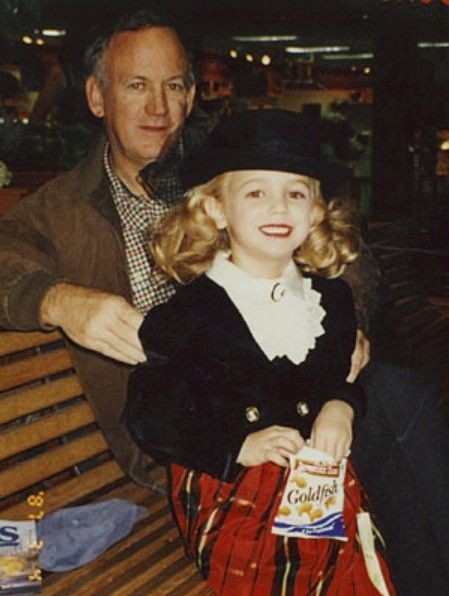





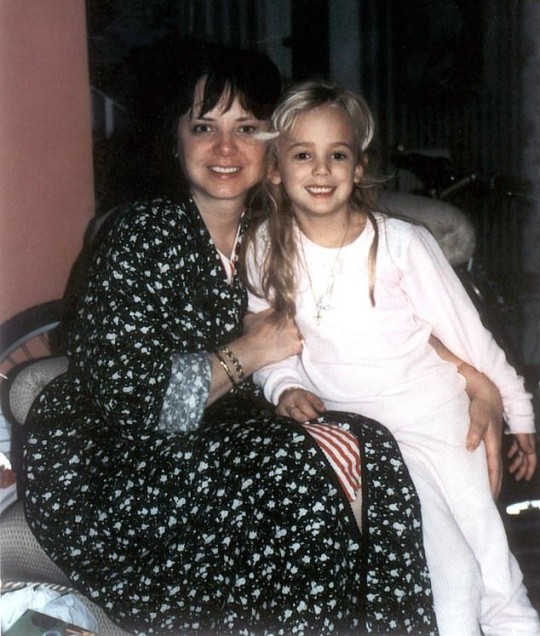
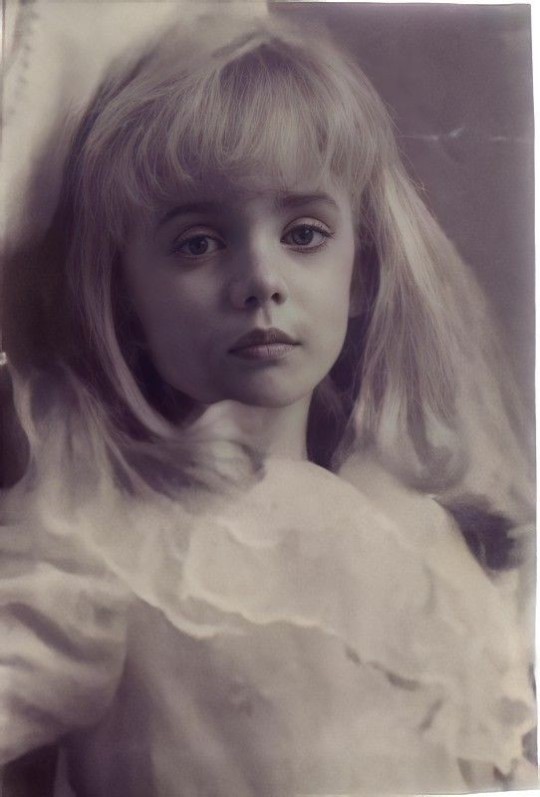

Jonbenet ramsey
.Childhood beauty pageant queen murdered this is such a good sad case and there’s been so much hearsay of who did what and who did this and who did that. it's simple to say that it's suspicious as hell this little girl is actually six days younger than me so for me it's very eerie..
Don’t ask me why because at the time obviously I wouldn’t have remembered this but when I’ve seen that and then we’ve got some very similar birth charts and the 90s and the parents of that time I know it was the McCanns I seriously believe they had some sort of involvement with their daughters disappearance with this I’m not too sure. I mean imagine your family putting the press, the price he wanted to.. make it look like the family did it,.. This is why I have to be careful with blind items the ones that are written I don’t mean I write them myself sources can be wrong, the press often want to create a narrative of what happened even if they don’t really know.
. because then they have a story then it’s a seller even though a poor little innocent little. girl’s life got taken.
The one bit that was really suspicious is the fact that it was taken the ransom note. Was taken from patsies, notebook. the amount they asked for. It wasn’t a round figure, on the size of the ransom note…
Which police believe the writing was similar to the mums anyway I watched the new documentary that came out the other day on Netflix, felt very uncomfortable watching the childhood beauty pageants it was like watching a mini woman like she knew all this stuff and it really made me feel eerie I’m sad., it was uncomfortable and for Patsy to say it’s sickos thinking like that it’s not, it's just how people tend to feel about the childhood beauty pageant world there could be dodgy people who get hold of this sort of thing. So rest in peace Jean benet the 9th of August 1990. December 26 1996 rest in peace rest in power.
0 notes
Text

90's Fest Event of the day: The murder of JonBenet Ramsey (1996) #history #murder #tragedy #jonbenetramsey #90s #90sfest #durandurantulsas3rdannual90sfest
0 notes